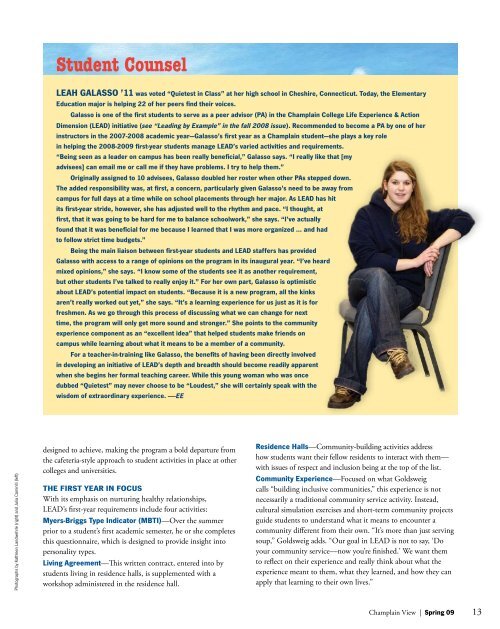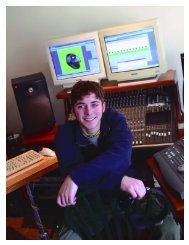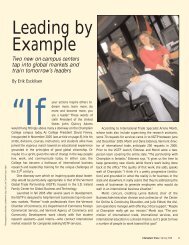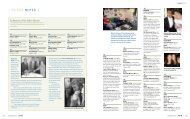You also want an ePaper? Increase the reach of your titles
YUMPU automatically turns print PDFs into web optimized ePapers that Google loves.
Student CounselLeah Galasso ’11 was voted “Quietest in Class” at her high school in Cheshire, Connecticut. Today, the ElementaryEducation major is helping 22 of her peers find their voices.Galasso is one of the first students to serve as a peer advisor (PA) in the <strong>Champlain</strong> <strong>College</strong> Life Experience & ActionDimension (LEAD) initiative (see “Leading by Example” in the fall 2008 issue). Recommended to become a PA by one of herinstructors in the 2007-2008 academic year—Galasso’s first year as a <strong>Champlain</strong> student—she plays a key rolein helping the 2008-2009 first-year students manage LEAD’s varied activities and requirements.“Being seen as a leader on campus has been really beneficial,” Galasso says. “I really like that [myadvisees] can email me or call me if they have problems. I try to help them.”Originally assigned to 10 advisees, Galasso doubled her roster when other PAs stepped down.The added responsibility was, at first, a concern, particularly given Galasso’s need to be away fromcampus for full days at a time while on school placements through her major. As LEAD has hitits first-year stride, however, she has adjusted well to the rhythm and pace. “I thought, atfirst, that it was going to be hard for me to balance schoolwork,” she says. “I’ve actuallyfound that it was beneficial for me because I learned that I was more organized … and hadto follow strict time budgets.”Being the main liaison between first-year students and LEAD staffers has providedGalasso with access to a range of opinions on the program in its inaugural year. “I’ve heardmixed opinions,” she says. “I know some of the students see it as another requirement,but other students I’ve talked to really enjoy it.” For her own part, Galasso is optimisticabout LEAD’s potential impact on students. “Because it is a new program, all the kinksaren’t really worked out yet,” she says. “It’s a learning experience for us just as it is forfreshmen. As we go through this process of discussing what we can change for nexttime, the program will only get more sound and stronger.” She points to the communityexperience component as an “excellent idea” that helped students make friends oncampus while learning about what it means to be a member of a community.For a teacher-in-training like Galasso, the benefits of having been directly involvedin developing an initiative of LEAD’s depth and breadth should become readily apparentwhen she begins her formal teaching career. While this young woman who was oncedubbed “Quietest” may never choose to be “Loudest,” she will certainly speak with thewisdom of extraordinary experience. —EEPhotographs by Kathleen Landwehrle (right) and Julia Caminiti (left)designed to achieve, making the program a bold departure fromthe cafeteria-style approach to student activities in place at othercolleges and universities.The First Year in FocusWith its emphasis on nurturing healthy relationships,LEAD’s first-year requirements include four activities:Myers-Briggs Type Indicator (MBTI)—Over the summerprior to a student’s first academic semester, he or she completesthis questionnaire, which is designed to provide insight intopersonality types.Living Agreement—This written contract, entered into bystudents living in residence halls, is supplemented with aworkshop administered in the residence hall.Residence Halls—Community-building activities addresshow students want their fellow residents to interact with them—with issues of respect and inclusion being at the top of the list.Community Experience—Focused on what Goldsweigcalls “building inclusive communities,” this experience is notnecessarily a traditional community service activity. Instead,cultural simulation exercises and short-term community projectsguide students to understand what it means to encounter acommunity different from their own. “It’s more than just servingsoup,” Goldsweig adds. “Our goal in LEAD is not to say, ‘Doyour community service—now you’re finished.’ We want themto reflect on their experience and really think about what theexperience meant to them, what they learned, and how they canapply that learning to their own lives.”<strong>Champlain</strong> View | Spring 09 13











